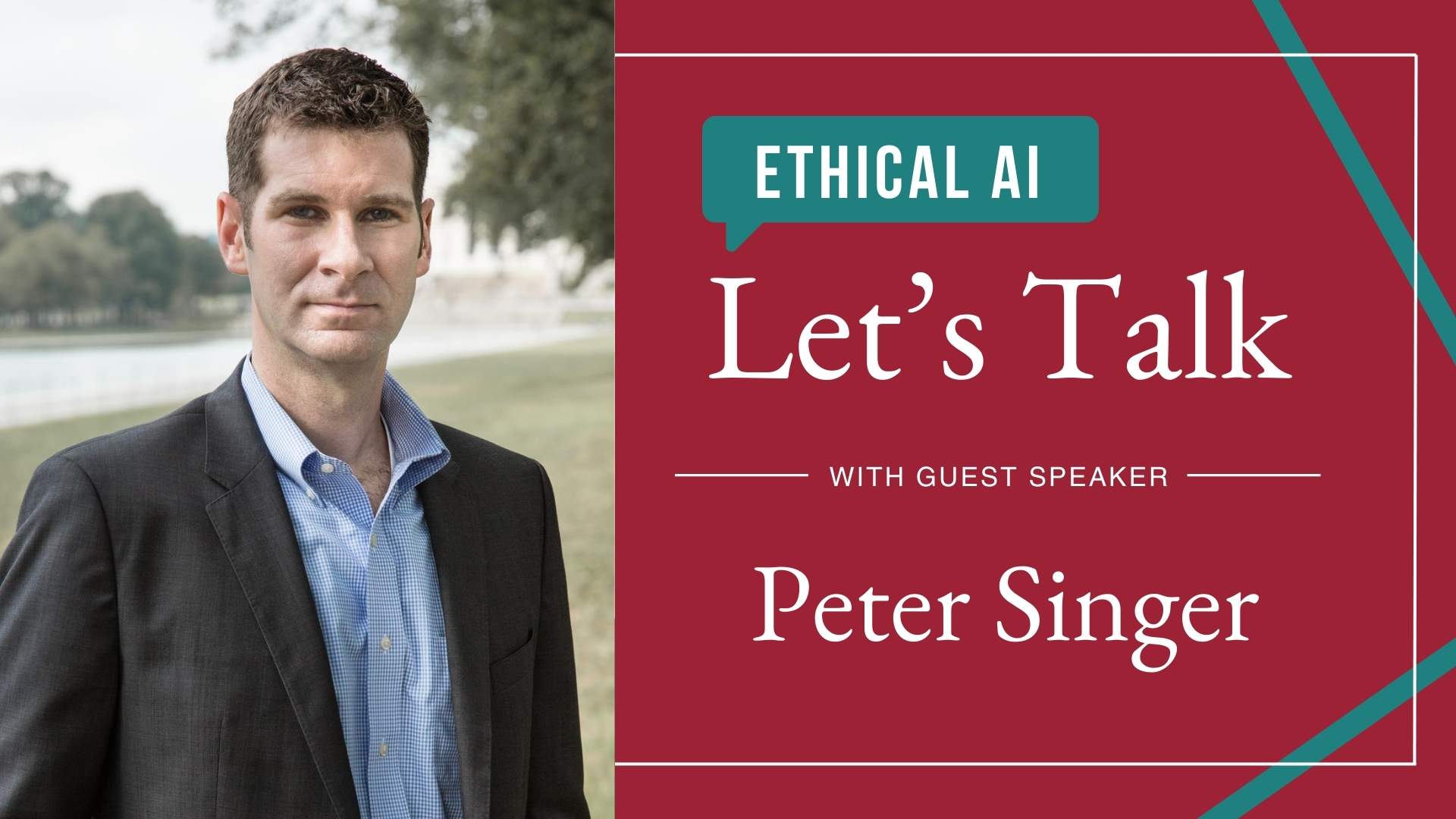

The Walton College welcomed Pete W. Singer as a guest speaker for the Let’s Talk about Ethical Artificial Intelligence (AI) program. Singer is a leading futurist, a Strategist at New America, a New York Times Bestselling author, and a Professor of Practice at Arizona State University. His work is centered around technology and the impact that it is going to have on business, society, and national security as we move into the future.
Singer began by stating that since all roles within an organization require making assumptions and choices about the future, we are all futurists. We are currently living through one of the most important stories in all of human history because of AI. Right now, as we see it affecting everything from medicine to warfare to trucking logistics, we are only scraping the surface of what is to come. AI’s development is being funded and supported by all of the leading governments around the world, multitudes of different research universities, and the corporate world.
It is a story of both software and hardware because all the changes that are playing out in AI are equally playing out in its applications into robotics. This combination of AI and robotics is pushing huge economic change and is expected to dramatically alter occupational specialties and job types over the next 20 years.
The pandemic has drastically accelerated this technological shift. It is expanding the digital network that brings us all together, and this network is not just constantly communicating, but also gathering information on the world and its users.
The question is, what is possible (that was not possible before) and what is proper? Being able to collect and share data like never before results in communication, but also conflict like never before. Singer discussed his book, Like War, and how the ability to drive ideas and information viral is linked to extremism and terrorism. Algorithms supported by AI are shaping the decisions we make, and this technology is being both marketized and weaponized. Digital means are being utilized to cause physical change in the world.
So how should we approach this innovation that has the potential to reshape our world on a similar scale as the industrial revolution? Singer laid out five different approaches that he believes we all need to take, whether we are thinking about them as individuals, organizations, industry leaders, or nations:
- We must work on closing the gap between simply being aware of the importance of AI and understanding the applications and dilemmas tied to this technology well enough to make effective decisions about it.
- We must recognize that so much of this comes down to the issue of trust in an emotional sense and an expectations sense. When integrating any kind of technology, one must consider not only whether it works according to expectations and if it matches our needs, but also how people feel about it and whether they trust in it.
- Incorporating this technology successfully is dependent on ensuring that the people side of the equation (e.g. the way we recruit, train, do assessments, etc.) is changing fast enough to match this level of shift.
- We need to catch up our legal and normative codes that guide us. We know that we will be faced with questions of right and wrong, and we can’t wait for the problem to arrive to recognize these ethical issues. We must be proactive and get ahead of the problem.
- We have to be change oriented in the midst of all of the misgivings around different trends, technologies, and dilemmas we are facing. If you observe these shifts taking place and choose inaction, the consequence will be losing the future.






